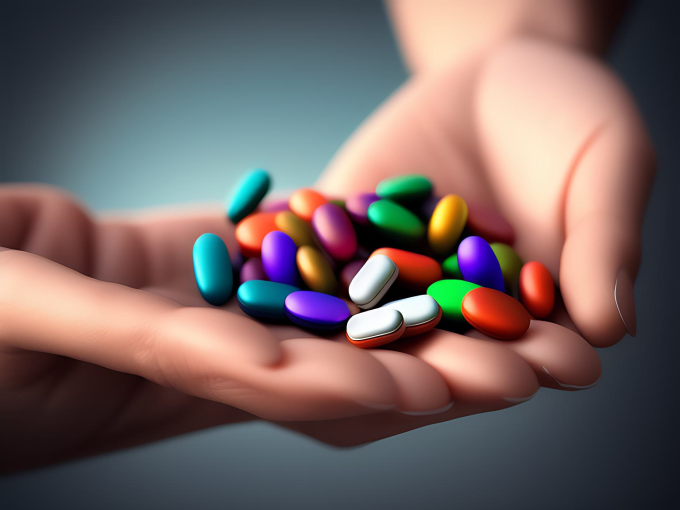Garcinia Cambogia is a natural herb that has been used to suppress appetite for weight loss. It is derived from a tropical fruit and is known to contain hydroxycitric acid (HCA), which is thought to help reduce appetite and cravings.
The success rate of Garcinia Cambogia is not well established. Studies have shown mixed results, with some studies showing positive results and others showing no effect. It is important to note that the supplement may not be effective for everyone, and it is important to speak with a healthcare professional before taking any supplement.
Other natural appetite suppressants that may be more effective than Garcinia Cambogia include green tea extract, glucomannan, and psyllium husk.
Glucomannan is a dietary fiber derived from the konjac root, a plant native to Asia. It works by absorbing water in the stomach and forming a thick gel-like substance that helps to slow down digestion and keep you feeling full for longer. It also helps to reduce cholesterol levels and blood sugar levels, as well as helping to regulate bowel movements.
Psyllium husk is a type of soluble fiber derived from the husks of the Plantago ovata plant, which is native to India. It is used as a dietary supplement to help promote regularity and support digestive health. Psyllium husk is often used as a thickening agent in baking and cooking, and it can also be used to make a gel-like substance that can be used as a vegan egg substitute. Studies have shown that psyllium husk is effective in helping to reduce cholesterol levels, improve blood sugar control, and aid in weight loss.
Psyllium husk can be taken for weight loss purposes by adding it to a glass of water or juice and drinking it. It can also be added to smoothies, yogurt, oatmeal, or other foods. It is important to drink plenty of water when taking psyllium husk to prevent constipation.
There are prescription medications that can reduce appetite in people. The most commonly prescribed medications for appetite suppression are phentermine, liraglutide, bupropion, and naltrexone. Other medications that may be prescribed include topiramate, lorcaserin, and zonisamide. It is important to speak with your doctor to determine which medication is best for you.
Naltrexone is an opioid antagonist medication used to treat alcohol and opioid dependence. It works by blocking the effects of opioids, such as the feeling of pleasure associated with drinking alcohol or taking drugs. It is also used to reduce cravings and help people stay in recovery from addiction. While it may help with appetite suppression and cravings, it is not specifically approved for this purpose.
Zonisamide is an anticonvulsant medication used to treat epilepsy. It is also sometimes used off-label to treat migraine headaches and neuropathic pain. Zonisamide is not typically used for weight loss, but it has been found to suppress appetite in some people. It works by blocking sodium channels in the brain, which can reduce hunger signals. It also increases levels of serotonin, which can help reduce cravings.
Zonisamide is generally considered safe for humans when taken as directed. However, it can cause side effects such as dizziness, drowsiness, nausea, and vomiting. It is important to talk to your doctor before taking zonisamide with any other medications, including Lamotrigine. Your doctor can help you determine if it is safe to take both medications together.
Liraglutide is a class of drugs known as glucagon-like peptide-1 (GLP-1) receptor agonists. It is a medication used to treat type 2 diabetes and obesity. It works by stimulating the release of insulin from the pancreas, which helps to lower blood sugar levels. It also helps to reduce appetite and promote weight loss.
Liraglutide is prescribed for people with type 2 diabetes who are unable to control their blood sugar levels with diet and exercise alone. It may also be used in combination with other diabetes medications.
Liraglutide is generally considered safe to take. However, it can cause side effects such as nausea, vomiting, diarrhea, and abdominal pain. It can also cause low blood sugar levels, so it is important to monitor your blood sugar levels closely while taking liraglutide. Talk to your doctor if you experience any side effects.
Yes, there are cardiovascular effects associated with Vyvanse. Vyvanse can increase blood pressure and heart rate. People with atrial fibrillation should use caution when taking Vyvanse and should be monitored closely by their doctor. It is important to discuss any existing heart conditions with your doctor before taking Vyvanse.
Vyvanse is a central nervous system stimulant. Yes, Vyvanse is a stimulant. Vyvanse can cause significant elevations in blood pressure in some people. Vyvanse is not associated with strokes, but it can increase the risk of cardiovascular events such as heart attack and stroke in some people.





